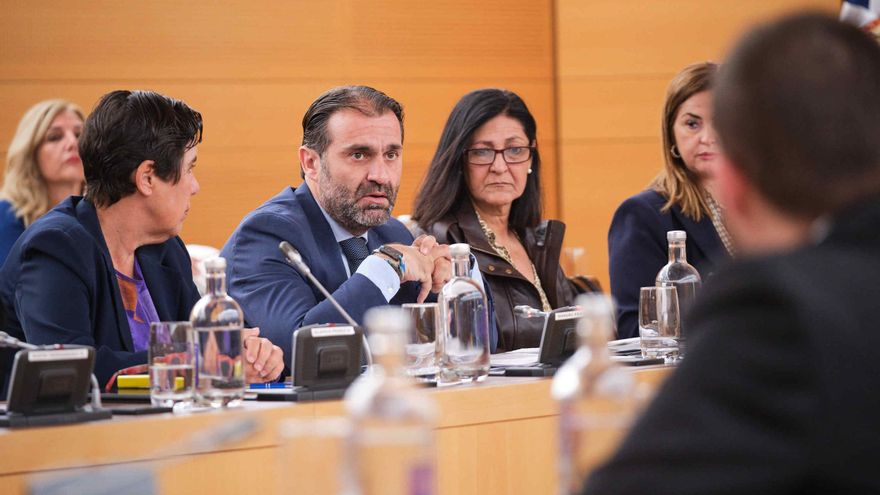
The long-standing partnership of over twenty years between the Tenerife Council and Bodegas Insulares SA (BITSA) must undergo restructuring to adhere to European Union (EU) regulations following the contract for the venue in Tacoronte coming to an end without the possibility of an extension. The government is committed, as revealed during the recent plenary session by the Minister of Industry and Primary Sector, Manuel Fernández, to establish a plan ensuring the continuity of the mixed company in which it holds a 45% stake. This is crucial to sustain the operations of 300 winegrowers who cultivate grapes for renowned brands such as North Vineyard in order to produce and market their wine. These winegrowers are mainly located in the Tacoronte-Acentejo region, the first designation of origin of Tenerife and the Canary Islands (1992), although they are present throughout the entire island. Fernández called for “foresight and unity” to find the legal and administrative framework to resolve this “serious issue” facing the Tenerife wine sector, with consensus from the producers and essential economic viability. The PP counselor provided an update on BITSA, after the company’s contract to occupy the Cabildo premises in Tacoronte expired on December 31, 2023, with no legal possibility of an extension.
Assistance
Fernández expressed the government group’s “unfaltering support” for the winegrowers and the wine sector in the region. He affirmed that “we are working towards providing a legal and social solution to the predicament arising from the termination of this contract.” The objective is to ensure compliance with the Treaties of the Functioning of the European Union, which stipulate the requirement of a fee for wineries to provide their services, following a complaint in 2010. The initial contract dates back to 2005, and the latest approved 10-year extension was granted on June 28, 2014, valid until December 31, 2023.
Dilemma
The fee amounts to 6% of the winery’s value, inclusive of the premises and equipment and machinery (totaling 2.5 million euros), translating to an annual payment of 159,476 euros. It is important to note that Bodegas Insulares consistently operates at a loss, although a meager annual profit of 50,000 euros was disclosed during the session, a far cry from the amount required for facility usage, a critical condition to avoid EU penalties for “unfair competition” and to sustain its services.
Timeline
The counselor announced that “following the recommendation of the technical and legal services of the area, we have outlined a nine-month period to ensure the continuity of the economic activity, which will assist us in devising a plan and reaching a satisfactory resolution to the situation surrounding Island Wineries.” Fernández guaranteed that “throughout this process, our aim is to operate with maximum information and transparency.” Therefore, he emphasized, “We seek the involvement of all political factions, urging them to exhibit foresight and join our commitment to the wine sector and producers.” Valentín González, counselor with the Primary Sector delegation, criticized the PSOE, which requested the appearance, for its “alarmist” and “negligent” approach. He made it clear that “we will not abandon anyone” and questioned “why they did not report anything during the four years they were in power, nor during the transfer of authority.” He concluded, “We are part of both the problem and the solution,” referring to the Cabildo’s dual role as the winery owner and a shareholder of the company.
Resistance
The socialist councilor Javier Parrilla, responsible for the sector in the previous term, stated that “we are already behind as there are not nine but seven months left, and it is anticipated that farmers may have no place to deliver 750.00 kilograms of grapes, resulting in non-bottled wine.” He highlighted that “the Social Capital Law permitted measures such as contributions from partners or increases in capital.” The Regulatory Council of the Tacoronte-Acentejo PDO expressed its “concern” about the “uncertainty” surrounding the continuation of the contract for using the Bodegas Insulares facilities. If not resolved, “it would gravely jeopardize the fragile stability” of the primary designation of origin in the Canary Islands, leaving the winegrowers in a precarious position.















